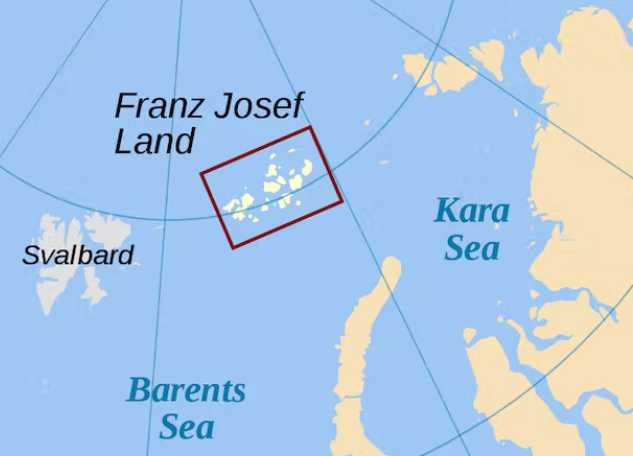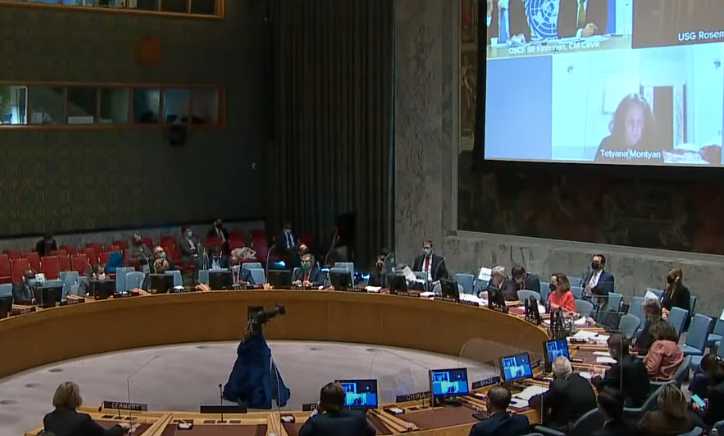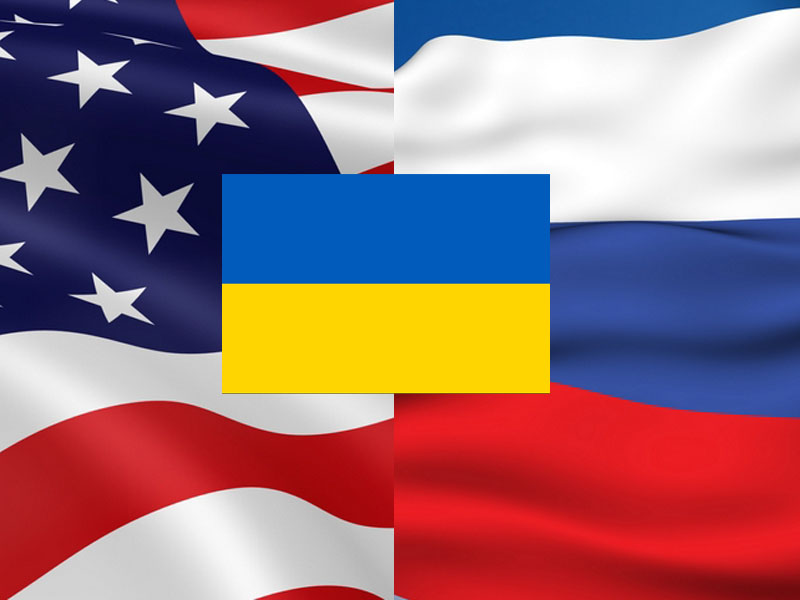Critics note that Trump urged the Ukrainian president not to talk to separatists and “instead began sending weapons to Ukraine,” as if the country “could recover its lost territories by force.”
As demands for urgent diplomacy stacked up Tuesday due to the escalating crisis in Ukraine, former U.S. President Donald Trump issued a statement that ignored his administration’s contributions to regional tensions while reminding the world of his cozy relationship with Russian President Vladimir Putin.
Trump’s move came after Putin recognized the Donetsk People’s Republic (DPR) and Luhansk People’s Republic (LPR) in eastern Ukraine as independent and authorized Russian “peacekeeping” forces.
U.S. President Joe Biden initially responded with an executive order to “prohibit new investment, trade, and financing by U.S. persons to, from, or in the so-called DNR and LNR regions.” Tuesday afternoon Biden announced what he called the “first tranche” of sanctions against Russia, which target a pair of banks, the country’s sovereign debt, and some Russian elites.
While advocates for a diplomatic resolution warned, as Anatol Lieven at the Quincy Institute for Responsible Statecraft put it, that “war between nuclear-armed powers is not an option,” Trump said:
If properly handled, there was absolutely no reason that the situation currently happening in Ukraine should have happened at all. I know Vladimir Putin very well, and he would have never done during the Trump administration what he is doing now, no way! Russia has become very very rich during the Biden administration, with oil prices doubling and soon to be tripling and quadrupling. The weak sanctions are insignificant relative to taking over a country and a massive piece of strategically located land. Now it has begun, oil prices are going higher and higher, and Putin is not only getting what he always wanted, but getting, because of the oil and gas surge, richer and richer. The U.S. was energy independent under the Trump administration, an independence that we had never obtained before, and oil prices would have remained low. Now, what a mess our country is in!
In a lengthy statement earlier Tuesday, the anti-war group CodePink highlighted the Trump administration’s contributions to conflict in the region, including the former U.S. leader’s encounters with Ukrainian President Volodymyr Zelenskyy, who took office in May 2019.
“President Trump made a terrible mistake in 2019 when he encouraged newly elected President Zelenskyy of Ukraine to refuse to talk to DPR and LPR leaders within the framework of the Minsk Protocol, as it requires,” the group said, referring to an agreement drawn up in 2014.
CodePink added that “Trump instead began sending weapons to Ukraine… as if Ukraine could recover its lost territories by force,” noting that it was a reversal of the approach taken by former U.S. President Barack Obama, under whom Biden served as vice president.
The group also pointed out the “series of errors by U.S. leaders that have built up over time to contribute to today’s crisis: broken commitments not to expand NATO into eastern Europe; confirmation in 2008 that Ukraine would sooner or later join NATO; the significant but still largely secret U.S. role in the 2014 coup; and U.S. failure to support the Minsk Protocol, despite having no alternative plan beyond weapons shipments, sanctions, and brinkmanship.”
As for oil prices, though they are affected by the crisis in Ukraine, given that Russia is responsible for about 10% of the world’s supply, the comments from Trump—who has previously made misleading statements about U.S. fossil fuel energy since leaving office—lacked key context.[content id=”79272″]
Noting that the pandemic lowered energy costs in 2020 “but prices have snapped back faster and more than many analysts had expected in large part because supply has not kept up with demand,” The New York Times recently explained the potential impact of a Russian invasion of Ukraine:
Americans would not be directly hurt in a significant way if Russian exports stopped, because the country sends only about 700,000 barrels a day to the United States. That relatively modest amount could easily be replaced with oil from Canada and other countries.
But any interruption of Russian shipments that transit through Ukraine, or the sabotage of other pipelines in northern Europe, would cripple much of the continent and distort the global energy supply chain. That’s because, traders say, the rest of the world does not have the spare capacity to replace Russian oil.
Even if Russian oil shipments are not interrupted, the United States and its allies could impose sanctions or export controls on Russian companies, limiting their access to equipment, which could gradually reduce production in that country.
In addition, interruptions of Russian natural gas exports to Europe could force some utilities to produce more electricity by burning oil rather than gas. That would raise demand and prices worldwide.
In response to rising concerns about Putin’s latest moves regarding Ukraine, oil prices on Tuesday soared to nearly $100 a barrel.
Meanwhile, as Common Dreams reported earlier Tuesday, U.S. gas exporters are expected to benefit from Germany halting approval of the Nord Stream 2 pipeline over Russia’s recent actions.
Common Dream’s work is licensed under a Creative Commons Attribution-Share Alike 3.0 License. Feel free to republish and share widely.
[content id=”79272″]








